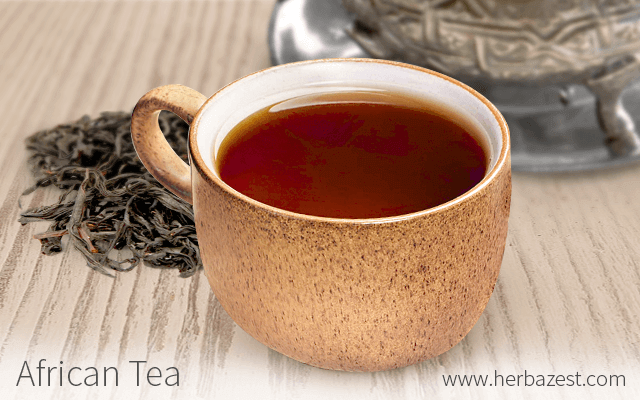The tea plant grown in Africa accounts for more than 30% of the total global tea leaves exports, and nearly half the tea consumed in the United Kingdom contains some African tea varieties.
About African Tea
There are two theories about the origins of tea in Africa. One claims that tea has made its first appearance in Malawi in the 1880s, while the other states that the first tea plant is thought to have been planted in 1903 in Kenya, which was a British colony at the time. Despite these uncertainties, tea cultivation has quickly spread to nearby countries, such as Tanzania, Zimbabwe, and Rwanda, which now collectively produce half a million tons of tea annually. Other African nations, like Mozambique and Cameroon, are beginning to develop plantations as well. In a few years, when these tea plants are mature and can be harvested, the production of African tea will increase even more.
Among all African tea types, the most important is black tea, processed through CTC (cut-tear-curl) machines to be used in tea blends around the world. The African production of green tea, Oolong, and white tea is much smaller, but it continues to increase in popularity.
African Tea Flavors
The rich variety of climates and elevations in Africa offers an ideal range of temperatures and amount of moisture for cultivating tea. These landscape variations also give African tea types their distinct flavor and aroma. The teas from Rwanda tend to have a full bodied, slightly astringent, and malty taste, while those grown in Mauritius are famous for their hints of vanilla. Kenya, who continues to be the main producer of African tea, grows tea that has a reddish tint and a fresh, brisk flavor.
Besides being exported to the rest of the world, African tea is also an important part of the African culture, and it is served throughout the day in many different forms. For example, in Senegal, green tea is drank with sugar and mint, while Kenyans usually take their tea the British way: with milk and sugar.
Where to Buy African Tea
Since the different African tea types are mainly used in tea blends, it is difficult to find them in supermarkets and tea stores, however, select online sellers do offer pure African black tea. On the other hand, blends containing African tea, such as English breakfast, can be found virtually everywhere.
Although the African tea industry is relatively new in comparison to countries such as China, Sri Lanka, or India, the continent has become one of the largest players in the international tea market, thanks to the popularity of its high-quality, aromatic varieties is steadily growing.
Sources
- Gender and Plantation Labour in Africa, pp. 31-34
- Tea: Cultivation to consumption, p. 331
- The National Agricultural Directory, pp. 244-245




